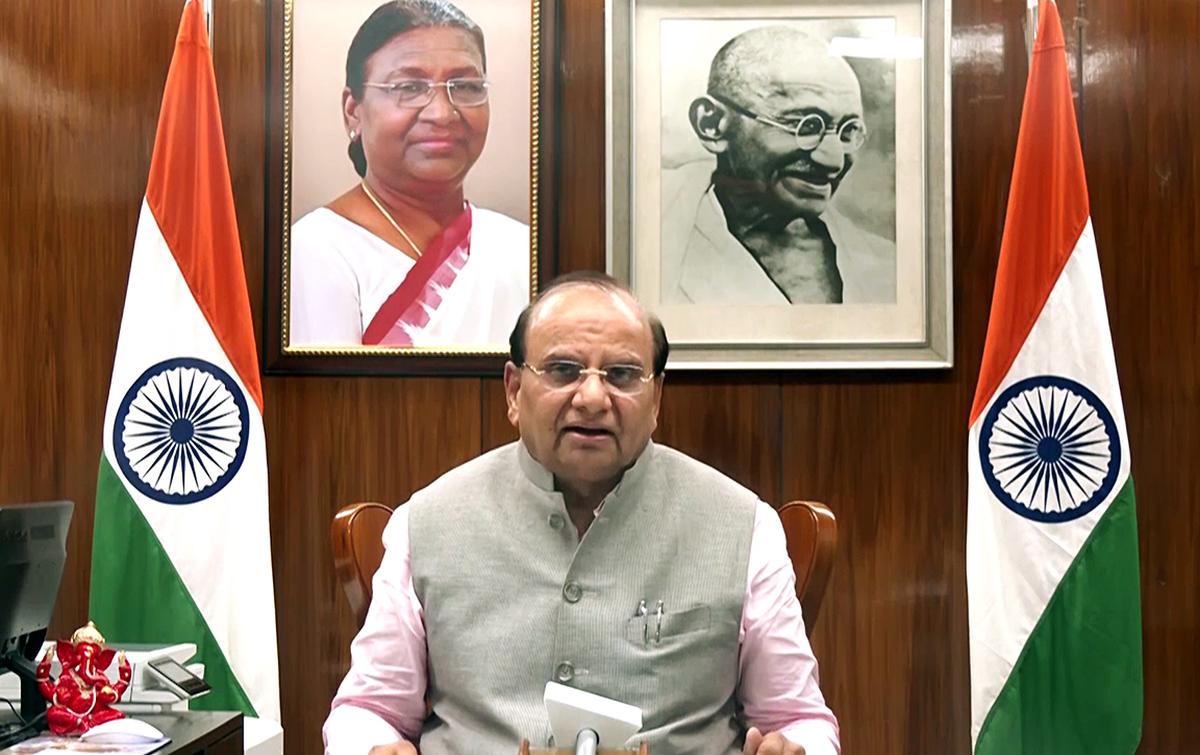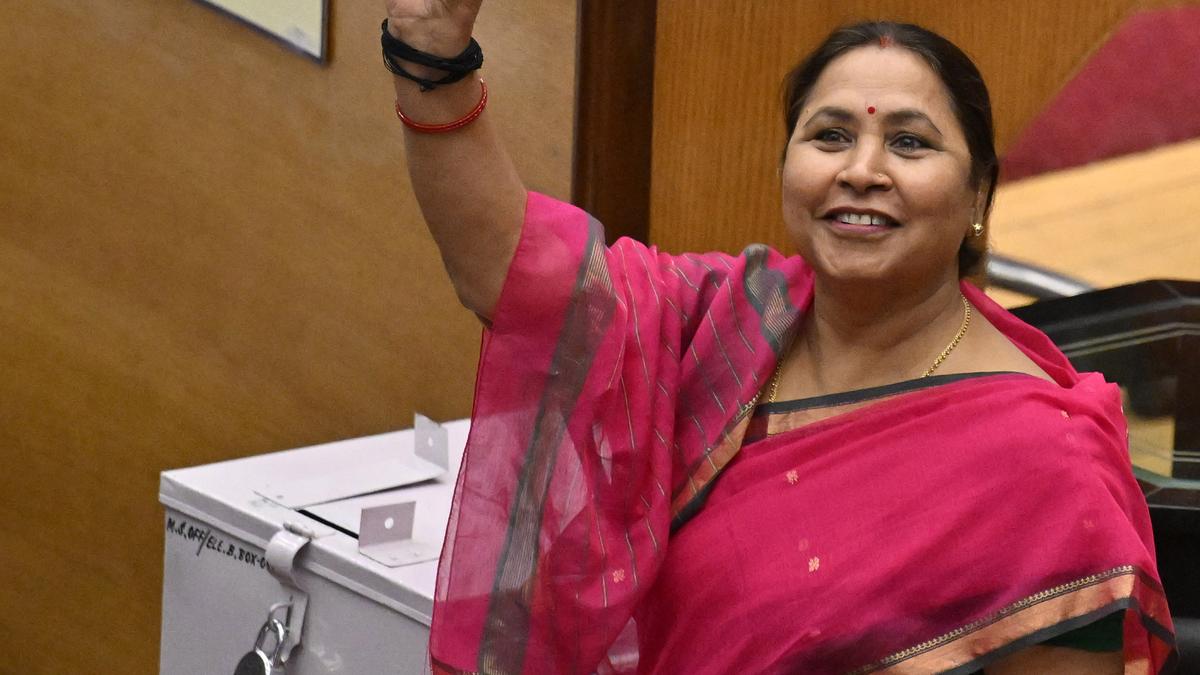New Delhi – In a groundbreaking administrative reform that promises to revolutionize the business landscape in the national capital, Delhi Police NoC not required has become the new reality for seven major commercial categories. This historic decision represents a significant departure from decades-old bureaucratic practices that had created substantial barriers for entrepreneurs and business owners seeking to establish commercial operations in Delhi.
Chief Minister Rekha Gupta announced this transformative policy change at a press conference on Monday, describing the reform as “historic” and emphasizing its potential to streamline business operations while allowing law enforcement to focus on their core responsibilities. The announcement that Delhi Police NoC not required for these specific business categories marks a watershed moment in Delhi’s approach to regulatory governance and ease of doing business.

The reform follows a directive issued on June 19 by Lieutenant Governor VK Saxena, which formally eliminated the mandatory Delhi Police licensing clearance requirement. This decision means that Delhi Police NoC not required for hotels, guest houses, restaurants, swimming pools, discotheques, video game parlours, amusement parks, and auditoriums represents a fundamental shift in how commercial establishments will operate in the capital.


Comprehensive Business Categories Affected
The scope of businesses where Delhi Police NoC not required encompasses a diverse range of commercial establishments that form the backbone of Delhi’s hospitality and entertainment sectors. Hotels and guest houses, which have traditionally faced the most complex licensing procedures, will now benefit from simplified approval processes without the need for police clearance.
Restaurants, which constitute a significant portion of Delhi’s commercial landscape, will find that Delhi Police NoC not required eliminates one of the most challenging aspects of their licensing journey. Swimming pools, both standalone facilities and those attached to hotels and clubs, will no longer need to navigate the complex police approval process that often delayed their operational timelines.
Also Read: Revolutionary Delhi Govt Weekly Grievance Camps Launched
Entertainment venues such as discotheques and video game parlours, where Delhi Police NoC not required represents a particularly significant change, will benefit from reduced regulatory burden. These establishments had previously faced extensive scrutiny regarding law and order implications, making the police clearance one of the most difficult approvals to obtain.
Amusement parks and auditoriums complete the list of categories where Delhi Police NoC not required will transform the business establishment process. These venues, which often serve large numbers of visitors, had previously required extensive police evaluation regarding crowd control and security measures.
Massive Impact on Business Community
Chief Minister Gupta emphasized that the decision ensuring Delhi Police NoC not required would benefit approximately 25,000 establishments and over 1.5 to 2 million workers across the capital. This massive scale of impact demonstrates the far-reaching consequences of regulatory reform and its potential to transform the business environment.
The announcement that Delhi Police NoC not required represents what Gupta described as “a win for both ease of doing business and strengthening law and order.” This dual benefit approach recognizes that simplifying business processes while allowing police to focus on core duties like crime prevention, women’s safety, and public order serves the broader public interest.
For over four decades, businesses in categories where Delhi Police NoC not required is now the standard had been required to obtain dual licensing – one from municipal bodies and another from Delhi Police. This duplication created unnecessary bureaucratic burden, increased costs, and extended timelines for business establishment.
Elimination of Bureaucratic Duplication
The historic nature of this reform becomes clear when considering that Delhi Police NoC not required eliminates a licensing requirement that had been in place for more than 40 years. The previous system required entrepreneurs to navigate multiple approval processes, with police clearance often proving to be the most challenging and time-consuming component.
Chief Minister Gupta explained that the new system where Delhi Police NoC not required would be “streamlined, cost-effective and time-saving,” supported by a single-window clearance platform designed to ensure transparency and faster approvals. This technological integration represents a modern approach to regulatory governance that leverages digital platforms to improve efficiency.
The reform aligns with Union Home Minister Amit Shah’s position that police should not be encumbered with non-core administrative tasks like business licensing. Since policing in Delhi falls under Union home ministry jurisdiction, this policy change reflects broader central government priorities regarding police role optimization.
Statistical Evidence of Reform Necessity
The data supporting the decision that Delhi Police NoC not required reveals the extent of challenges faced by businesses under the previous system. According to Municipal Corporation of Delhi data, Delhi Police had the highest rejection rate among all departments involved in trade licensing processes, with a staggering 71.1% rejection rate.
Between October 2019 and the reform announcement, Delhi Police received 51,858 applications for licenses related to establishments where Delhi Police NoC not required is now the standard. Of these applications, 36,903 were rejected, with only 13,354 receiving approval. This rejection rate far exceeded other regulatory bodies involved in the licensing process.
In contrast, Delhi Fire Services, which will continue its role even though Delhi Police NoC not required, maintained a rejection rate of only 11.5% during the same period. The Delhi Pollution Control Committee rejected 35.3% of applications, while the Municipal Corporation of Delhi had a rejection rate of approximately 50%.
Police Perspective on Regulatory Change
Delhi Police defended their previous scrutiny levels, explaining that their assessment process involved more than 30 parameters, including criminal background checks, law and order implications, traffic feasibility, CCTV installation requirements, and licensing considerations for liquor and health trade establishments.
A senior licensing unit officer emphasized that police evaluation went beyond standard safety norms, stating that “law and order is a major concern” in their assessment process. However, the reform recognizing that Delhi Police NoC not required allows the force to redirect resources toward core policing functions while maintaining public safety through other mechanisms.
The police had previously flagged several hotels and guest houses for failing to verify guests and becoming hubs of illegal activity. In 2022, the Joint Commissioner of Police had even requested booking platforms to delist properties that failed to meet security standards. The reform ensuring Delhi Police NoC not required will require alternative approaches to address these legitimate security concerns.
Political and Industry Response


Delhi Mayor Raja Iqbal Singh welcomed the change, emphasizing that Delhi Police NoC not required would ease the burden on business owners significantly. He stated that entrepreneurs would now be able to focus on running their businesses instead of chasing documents, with the single-window system making health trade license acquisition from MCD much simpler.


Standing Committee Chairperson Satya Sharma described the reform as ending “Inspector Raj,” ensuring that business owners would no longer be at the mercy of multiple officials. This perspective highlights how Delhi Police NoC not required addresses concerns about regulatory harassment and bureaucratic inefficiency.
Industry associations responded enthusiastically to the announcement. K. Syama Raju, president of the Federation of Hotel & Restaurant Associations of India, described the step as particularly beneficial for an industry still recovering from economic disruptions. The decision that Delhi Police NoC not required would help reduce compliance burdens, encourage entrepreneurship, and boost investor confidence.
Implementation and Future Implications
The implementation of Delhi Police NoC not required for the seven specified business categories will be supported by enhanced single-window clearance mechanisms designed to maintain regulatory oversight while improving efficiency. This technological integration ensures that the elimination of police clearance requirements doesn’t compromise other important regulatory functions.
The reform represents a model that other states might consider adopting, as suggested by industry leaders who hope this approach will spread beyond Delhi. The success of Delhi Police NoC not required could influence similar regulatory reforms across India, potentially transforming how businesses interact with government approval processes nationwide.
This historic change demonstrates how targeted regulatory reform can simultaneously improve business climate while allowing government agencies to focus on their core functions, creating a win-win scenario for economic development and public administration efficiency.

